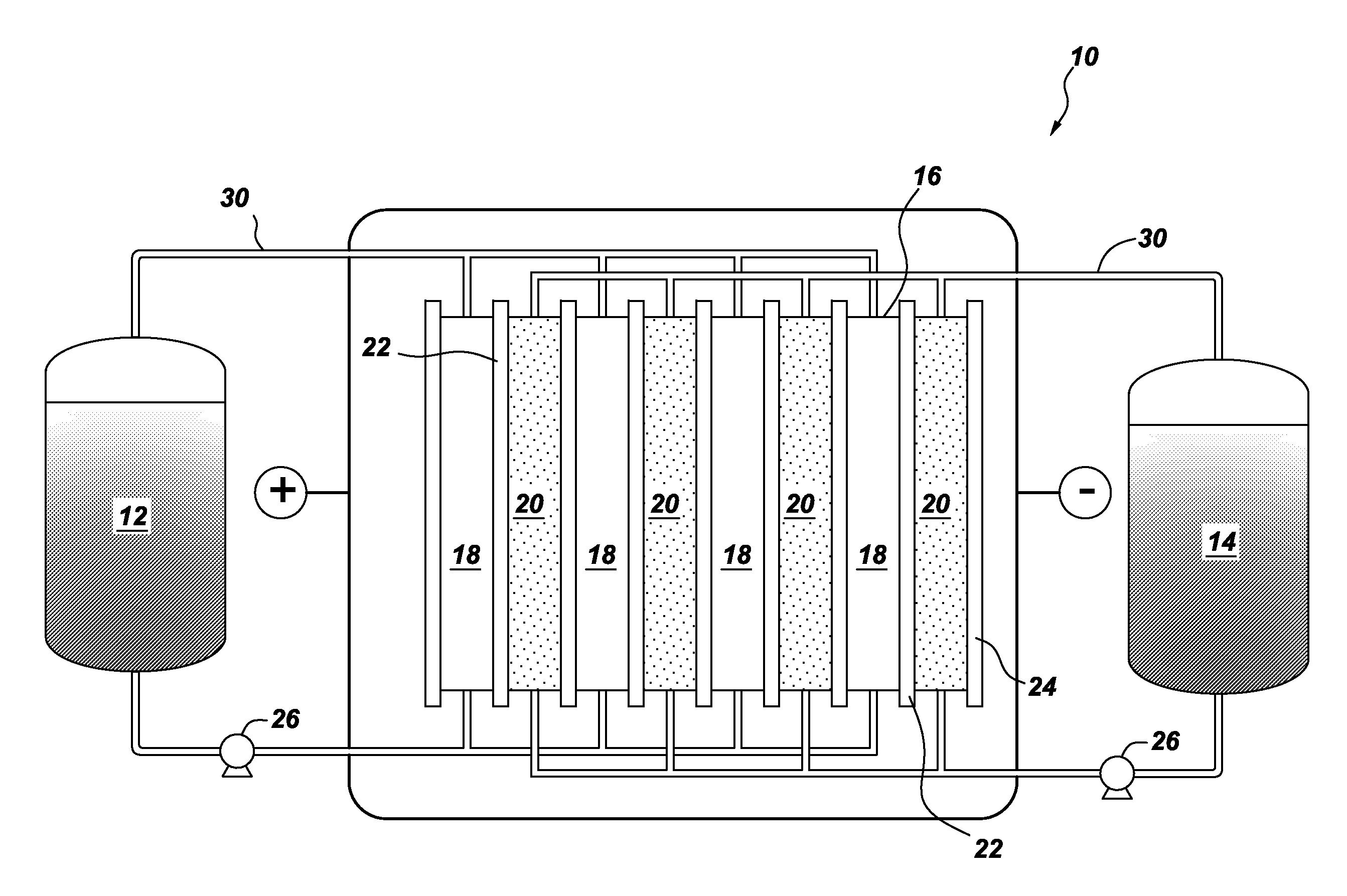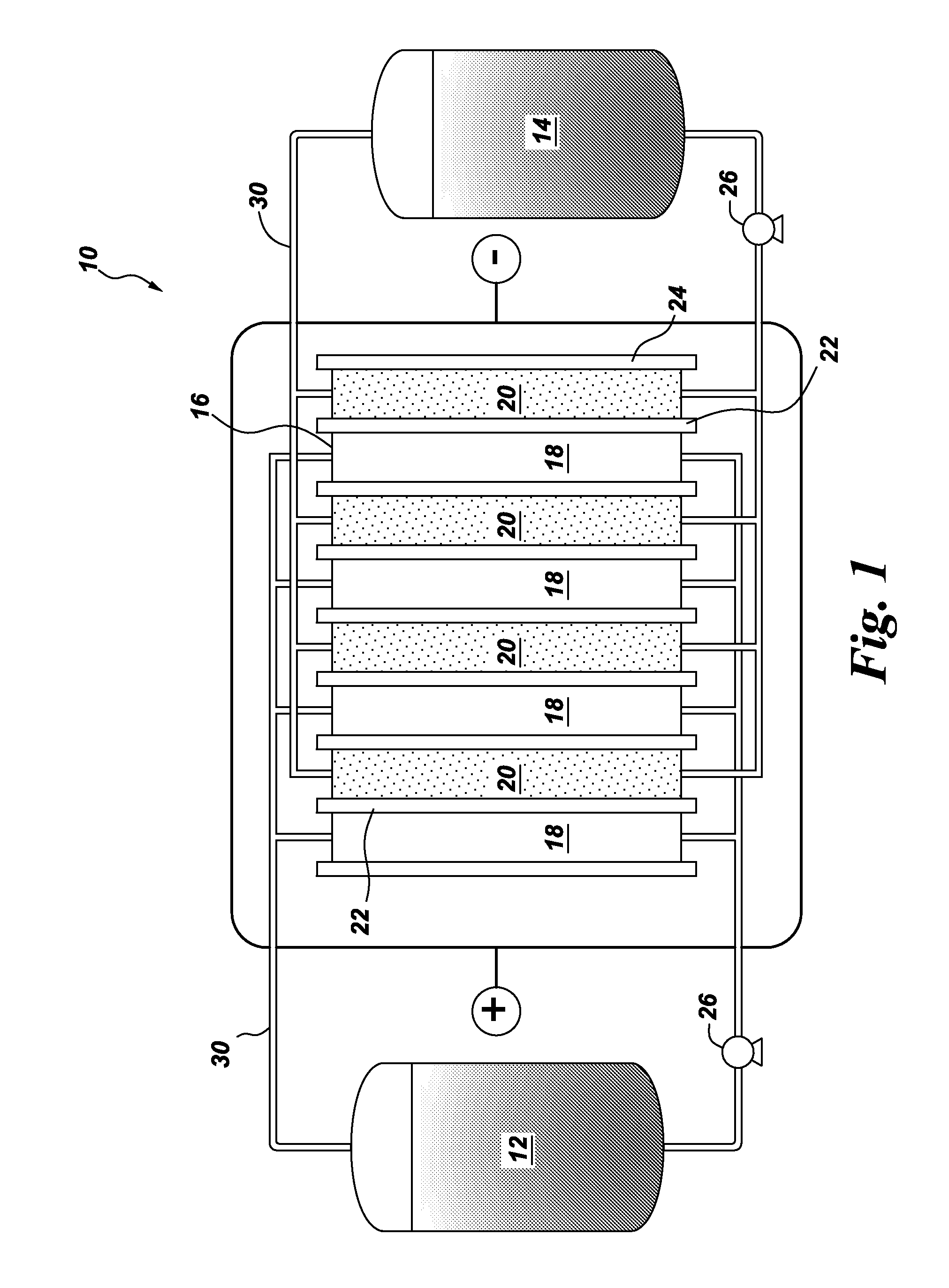Cathodes capable of operating in an electrochemical reaction, and related cells, devices, and methods
a technology of cathodes and electrochemical reactions, applied in the direction of aqueous electrolyte fuel cells, electrochemical generators, indirect fuel cells, etc., can solve the problems of high material cost of currently-used electrode materials, inability to fully scale, and inhibit the widespread penetration of rfb's into the mark
- Summary
- Abstract
- Description
- Claims
- Application Information
AI Technical Summary
Benefits of technology
Problems solved by technology
Method used
Image
Examples
Embodiment Construction
[0012]One embodiment of the invention is directed to a flow battery that contains at least one electrochemical cell. One or more of the electrochemical cells comprise a halogen oxoacid salt, and an anode. The anode may comprise a liquid organic hydrogen carrier, or a metal. Usually, the oxoacid compound conforms to the general formula HXO3, where X is chlorine, bromine, or iodine. The corresponding salts are the chlorate salt, the bromate salt, and the iodate salt, respectively.
[0013]In the case of chlorine, the corresponding salt of chloric acid (i.e, the chlorate) is often selected from the group consisting of sodium chlorate, potassium chlorate, lithium chlorate, calcium chlorate, magnesium chlorate, zinc chlorate; and combinations thereof. In the case of bromine, the corresponding salt of bromic acid (i.e., the bromate) is often selected from the group consisting of sodium bromate, potassium bromate, lithium bromate, calcium bromate, magnesium bromate, zinc chlorate; and combina...
PUM
 Login to View More
Login to View More Abstract
Description
Claims
Application Information
 Login to View More
Login to View More - R&D
- Intellectual Property
- Life Sciences
- Materials
- Tech Scout
- Unparalleled Data Quality
- Higher Quality Content
- 60% Fewer Hallucinations
Browse by: Latest US Patents, China's latest patents, Technical Efficacy Thesaurus, Application Domain, Technology Topic, Popular Technical Reports.
© 2025 PatSnap. All rights reserved.Legal|Privacy policy|Modern Slavery Act Transparency Statement|Sitemap|About US| Contact US: help@patsnap.com



